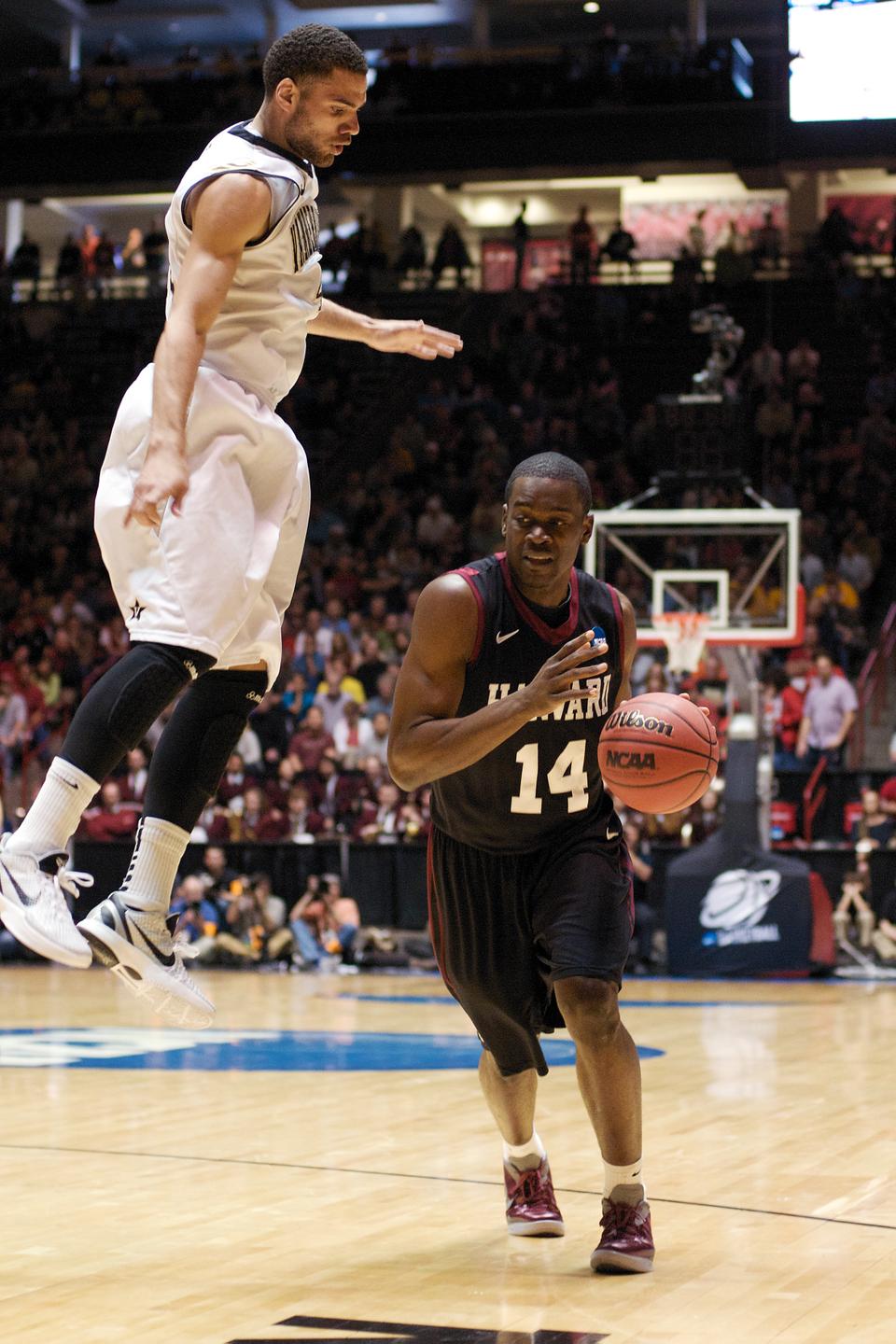
News
HMS Is Facing a Deficit. Under Trump, Some Fear It May Get Worse.

News
Cambridge Police Respond to Three Armed Robberies Over Holiday Weekend

News
What’s Next for Harvard’s Legacy of Slavery Initiative?

News
MassDOT Adds Unpopular Train Layover to Allston I-90 Project in Sudden Reversal

News
Denied Winter Campus Housing, International Students Scramble to Find Alternative Options
GAME OF THE YEAR: Men’s Basketball Goes Dancing

The Harvard men’s basketball team won a program-record 26 games this season, but the squad’s most significant contest was really one it lost.
Indeed, the importance of the Crimson’s March 15 game against Vanderbilt went far beyond what the scoreboard read when the final buzzer sounded: Vanderbilt 79, Harvard 70. Just the fact that the Crimson had made it to the NCAA tournament—somewhere it had not been since 1946, when what is now the Big Dance was less important than the NIT—meant that the squad had finally achieved one of its longstanding goals.
“It [was] just a dream come true,” co-captain Keith Wright said after the game. “We’ve put a lot of time, blood, sweat, and tears into this basketball program.... Unfortunately we didn’t come out with a victory, but this is something that we’re going to carry with us the rest of our lives. It’s a stage where not many players get to play, and we are definitely grateful for that.”
The game marked a summit of a five-year climb for the program under coach Tommy Amaker, who took a squad that went 8-22 in his first season and four years later had it playing under college basketball’s brightest lights.
It marked a reason for celebration for a fan base that for so long had accepted mediocrity, one that could now proudly cheer for its own school when the calendar turned to March.
It marked, for students and alumni who might otherwise place no importance on athletics, a reason for interest and participation—either by watching at home on TNT, or by traveling to attend the second-round game in Albuquerque, N.M., as many did (including some members of the 1946 squad).
And for the team itself, from the seniors who had worked toward that very stage for four long years to the freshmen on their first spring break, the contest marked the ability to play in a basketball game of a magnitude none of their predecessors had experienced before.
“It was a great experience for all of us,” junior point guard Brandyn Curry says. “March Madness is one of the biggest sporting events in the world. We all grew up watching it; to finally be there, be in the moment and experience it, was a dream come true at least for me, and I know for a lot of other guys as well.”
“It was crazy,” classmate Christian Webster adds. “Just walking out of the tunnel and seeing that big screen and the floor, it was everything I’d dreamed about playing for in college. It was unbelievable.”
For those reasons, the game’s importance went far beyond the final result. But the contest’s significance was not hurt by the fact that it was also quite a match.
The teams dueled evenly early on, and the Crimson even took a lead at 20-17 on a Webster three with 5:28 to go in the first half.
But Vanderbilt’s Jeffery Taylor answered right back with a long ball of his own, and the Commodores closed the half on a 16-3 run—capped by a Brad Tinsley three at the buzzer—to take a 10-point lead into the break.
“We could’ve played a lot better,” Curry says. “That run really, really killed us.”
The Crimson came out sluggish in the second, with Curry turning it over and junior forward Kyle Casey missing a dunk, and the Commodores took advantage by building a 62-44 lead with 7:49 to go.
But that was when the Crimson made its run.
Within 90 seconds, a Casey dunk, Casey three, and Curry layup had the deficit down to 11. After Vanderbilt answered to go up 67-51, sophomore forward Laurent Rivard drilled back-to-back tough threes—he finished six-of-seven from deep for a team-high 20 points—and Curry hit a layup to cut the lead to nine with 3:30 remaining in the game.
Two Wright free throws would get the Crimson within five, 70-65, with 1:51 to go, and Harvard had the chance to make it a one-possession game. But senior guard Oliver McNally lost the ball out of bounds, and the Crimson never got closer than that.
“I thought we were going to come back,” McNally said afterward. “We made a great run.”
In the end, Harvard’s nine-point loss to the SEC tournament champions—who had knocked off future national title winner Kentucky a week earlier—was a respectable one.
“This is a huge step for our program,” Wright said after the game. “We’re leaving our mark here on the University and the basketball program itself.”
But for the players who got to achieve their dream of playing on college basketball’s biggest stage, it only left them wanting more.
“It hurts to lose, [and] it left a bitter taste in our mouths, but the whole experience was great,” Curry says. “We’re just hungry to get back.”
—Staff writer Scott A. Sherman can be reached at ssherman13@college.harvard.edu.
Want to keep up with breaking news? Subscribe to our email newsletter.
